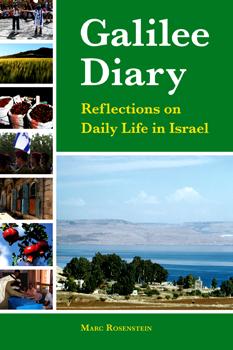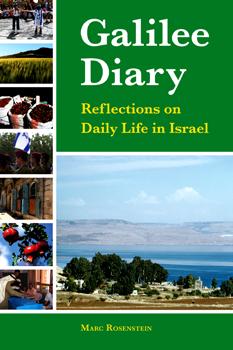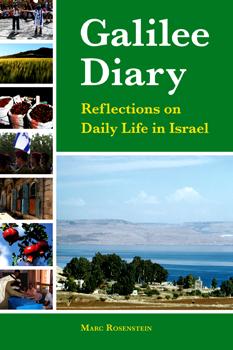4/3/13 Wednesday – Israel Connections
HTTP/1.1 200 OK Server: nginx Content-Type: text/html; charset=utf-8 X-Drupal-Cache: MISS Etag: “1365002717-0″ Content-Language: en Link: ; rel=”shortlink”,; rel=”canonical” X-Generator: Drupal 7 (https://drupal.org) Cache-Control: public, max-age=10800 Expires: Sun, 19 Nov 1978 05:00:00 GMT Vary: Cookie,Accept-Encoding Last-Modified: Wed, 03 Apr 2013 15:25:17 GMT X-AH-Environment: prod Content-Length: 96245 Date: Wed, 03 Apr 2013 15:25:19 GMT X-Varnish: 969898703 Age: 0 Via: 1.1 varnish Connection: keep-alive X-Cache: MISS Galilee Diary: On The Barricades | Reform Judaism
By Rabbi Marc Rosenstein, 4/03/2013
The Land of Israel was the birthplace of the Jewish people. Here their spiritual, religious and political identity was shaped. Here they first attained to statehood, created cultural values of national and universal significance and gave to the world the eternal Book of Books.
-Opening sentences of the Israel Declaration of Independence, 1948
During the 1930s and 40s, the able-bodied men of the Jewish community of Palestine were often called up to defend the community against violent attacks. Non-combatants were encouraged to volunteer to fill in for the defenders in their civilian jobs – especially urgent agricultural tasks. And so it happened that when the 12th graders of the elite Herzliya “Gymnasia” (high school) in Tel Aviv had a confrontation with Baruch Ben Yehudah, their principal, who refused to give them permission to miss classes and exams to go help out in border settlements, the students noticed that their principal was speaking through his tears.
I was reminded of this touching story recently when students in the Israeli Rabbinical Program requested, for the second time in two weeks, to be excused from class in order to participate in a demonstration protesting state discrimination against liberal Jews’ right of religious expression in the Jewish state. This request raises two different dilemmas:
- The relative importance of school-learning vs. real-life action in the educational process. This is an eternal dilemma, at every level of education, and has no clear-cut answer; in our case, obviously we don’t want rabbis who flunked Torah class because they were out marching; on the other hand we don’t want learned rabbis who don’t feel an obligation to play an active role in tikkun olam. And there are a lot of demonstrations in Jerusalem…
- The question of the appropriate approach to resolving the lack of religious pluralism in the Jewish state. It is tempting to frame this issue in terms of the civil rights struggle in the United states. However, I’m not sure the cases are really parallel. In the struggle for civil rights, years of sit-ins and pray-ins and mass marches came to remind the leadership of the nation – and everybody else – that the values on which the country was based were being violated. There was no acceptable counter-argument: the United States imagined itself to be a land of freedom, equality, and dignity – in the end, there was no case to be made for denying those rights to anyone. The struggle was unbeatable because it came to remind us of what we said we believed in.
Israel’s declaration of independence, unlike that of the United States, begins with the words above. Israel is a democracy – but first, it defines itself as a Jewish state. For over a century we’ve been arguing over what that means, and there is no consensus. Does the Jewishness of the state imply a norm of religious practice? State authority for religious functionaries? Culture? A dominant ethnic group? A set of moral values? Particular borders? None of the above? It would be interesting, and perhaps even useful, to have a serious conversation about these different options, in which partisans of each would listen to and take seriously each others’ concerns and aspirations. However, such conversations rarely take place, and what is left is a discourse of force. Those who shout the loudest, or get the most front-page column inches, or the most arrests, or the key ministry in the coalition, perceive themselves as winning – and the others as losing. Which is OK, I suppose. Until the next round. There’s a familiar slogan that one hears around here: “the only language the _____ [the other side] understand is force.” Unfortunately, it’s apparently fallacious, because no matter how loudly we speak that language, the other side never seems to get it (nor do we, when we are the other side). And so, after a century, the various struggles to which we are a party remain unresolved. Perhaps we should take a break from force, and try to find the shared values, the overarching principles, the common interests, to which we can all pledge allegiance, in order to find a language that we can speak to each other, and understand.
Submit a blog post
Share your voice: ReformJudaism.org accepts submissions to the blog for consideration.
HTTP/1.1 200 OK Server: nginx Content-Type: text/html; charset=utf-8 X-Drupal-Cache: MISS Etag: “1365002717-0″ Content-Language: en Link: ; rel=”shortlink”,; rel=”canonical” X-Generator: Drupal 7 (https://drupal.org) Cache-Control: public, max-age=10800 Expires: Sun, 19 Nov 1978 05:00:00 GMT Vary: Cookie,Accept-Encoding Last-Modified: Wed, 03 Apr 2013 15:25:17 GMT X-AH-Environment: prod Content-Length: 96245 Date: Wed, 03 Apr 2013 15:25:19 GMT X-Varnish: 969898703 Age: 0 Via: 1.1 varnish Connection: keep-alive X-Cache: MISS Galilee Diary: On The Barricades | Reform Judaism
By Rabbi Marc Rosenstein, 4/03/2013
The Land of Israel was the birthplace of the Jewish people. Here their spiritual, religious and political identity was shaped. Here they first attained to statehood, created cultural values of national and universal significance and gave to the world the eternal Book of Books.
-Opening sentences of the Israel Declaration of Independence, 1948
During the 1930s and 40s, the able-bodied men of the Jewish community of Palestine were often called up to defend the community against violent attacks. Non-combatants were encouraged to volunteer to fill in for the defenders in their civilian jobs – especially urgent agricultural tasks. And so it happened that when the 12th graders of the elite Herzliya “Gymnasia” (high school) in Tel Aviv had a confrontation with Baruch Ben Yehudah, their principal, who refused to give them permission to miss classes and exams to go help out in border settlements, the students noticed that their principal was speaking through his tears.
I was reminded of this touching story recently when students in the Israeli Rabbinical Program requested, for the second time in two weeks, to be excused from class in order to participate in a demonstration protesting state discrimination against liberal Jews’ right of religious expression in the Jewish state. This request raises two different dilemmas:
- The relative importance of school-learning vs. real-life action in the educational process. This is an eternal dilemma, at every level of education, and has no clear-cut answer; in our case, obviously we don’t want rabbis who flunked Torah class because they were out marching; on the other hand we don’t want learned rabbis who don’t feel an obligation to play an active role in tikkun olam. And there are a lot of demonstrations in Jerusalem…
- The question of the appropriate approach to resolving the lack of religious pluralism in the Jewish state. It is tempting to frame this issue in terms of the civil rights struggle in the United states. However, I’m not sure the cases are really parallel. In the struggle for civil rights, years of sit-ins and pray-ins and mass marches came to remind the leadership of the nation – and everybody else – that the values on which the country was based were being violated. There was no acceptable counter-argument: the United States imagined itself to be a land of freedom, equality, and dignity – in the end, there was no case to be made for denying those rights to anyone. The struggle was unbeatable because it came to remind us of what we said we believed in.
Israel’s declaration of independence, unlike that of the United States, begins with the words above. Israel is a democracy – but first, it defines itself as a Jewish state. For over a century we’ve been arguing over what that means, and there is no consensus. Does the Jewishness of the state imply a norm of religious practice? State authority for religious functionaries? Culture? A dominant ethnic group? A set of moral values? Particular borders? None of the above? It would be interesting, and perhaps even useful, to have a serious conversation about these different options, in which partisans of each would listen to and take seriously each others’ concerns and aspirations. However, such conversations rarely take place, and what is left is a discourse of force. Those who shout the loudest, or get the most front-page column inches, or the most arrests, or the key ministry in the coalition, perceive themselves as winning – and the others as losing. Which is OK, I suppose. Until the next round. There’s a familiar slogan that one hears around here: “the only language the _____ [the other side] understand is force.” Unfortunately, it’s apparently fallacious, because no matter how loudly we speak that language, the other side never seems to get it (nor do we, when we are the other side). And so, after a century, the various struggles to which we are a party remain unresolved. Perhaps we should take a break from force, and try to find the shared values, the overarching principles, the common interests, to which we can all pledge allegiance, in order to find a language that we can speak to each other, and understand.
Submit a blog post
Share your voice: ReformJudaism.org accepts submissions to the blog for consideration.




